Nest Audio vs Amazon Echo 4th generation
Google and Amazon's smart speakers go head to head – which is the best mid-range AI speaker box for your money?
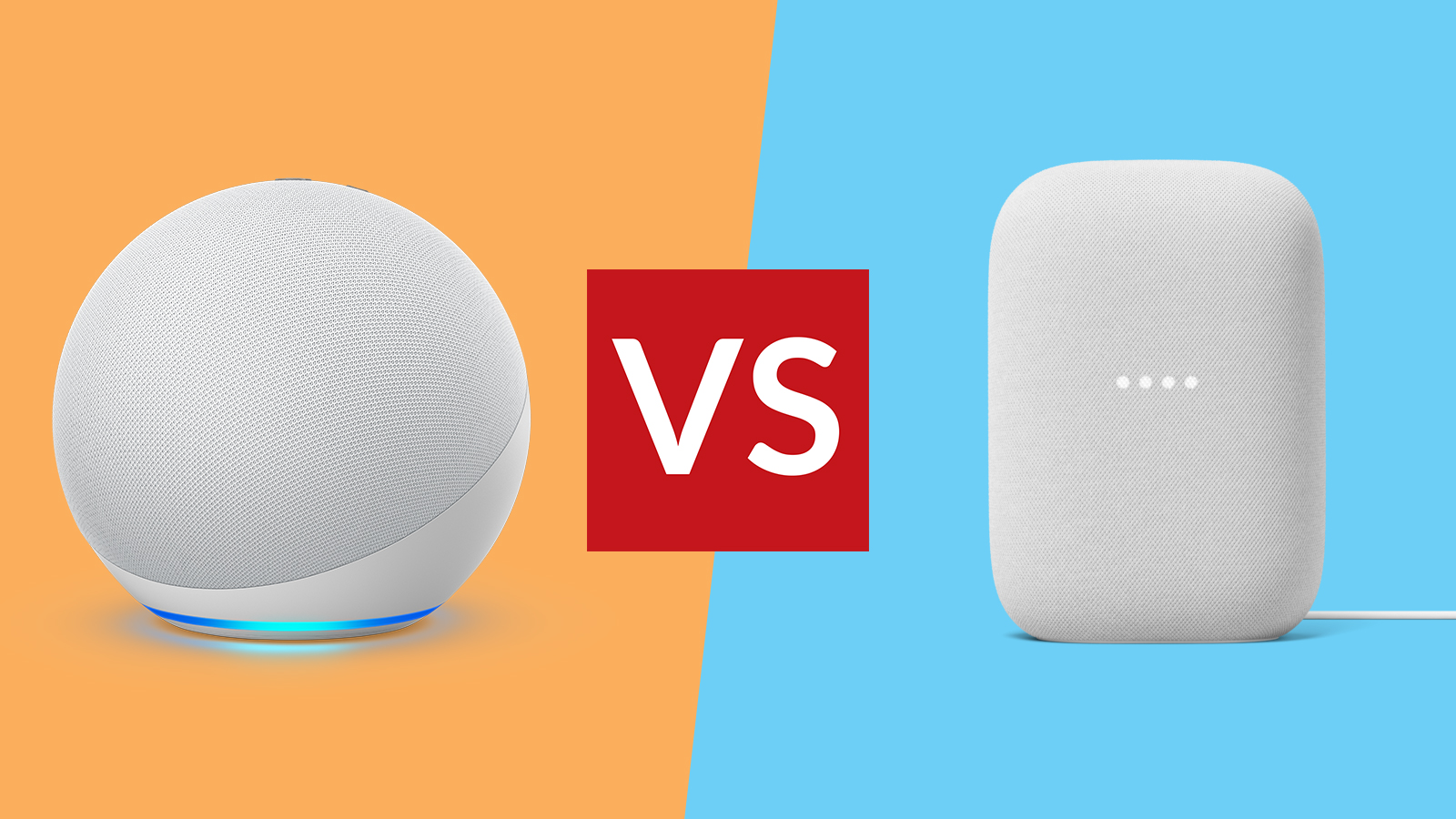
Get all the latest news, reviews, deals and buying guides on gorgeous tech, home and active products from the T3 experts
You are now subscribed
Your newsletter sign-up was successful
With the newly spherical Amazon Echo and the freshly brick-shaped Nest Audio marking a new generation of the best smart speakers, we are spoiled for choice. But in a fight for the best smart speaker crown, does Google or Amazon come out on top?
Frankly it's not nearly that simple. These are smart speakers which are similar in many ways, radically different in others, and it's nigh on impossible for us to select which is best considering it's not our home they're going into – it's yours. This isn't a question of plugging the numbers into a spreadsheet and calculating a winner, because all the maths in the world isn't going include the human factor.
Instead, we'll compare their key factors so you can make the decision which works for you. If you'd like to know how they look in isolation, you can check out our individual Nest Audio review and Amazon Echo (4th gen) review – and we also have our guide to the best Alexa speakers of all kinds.
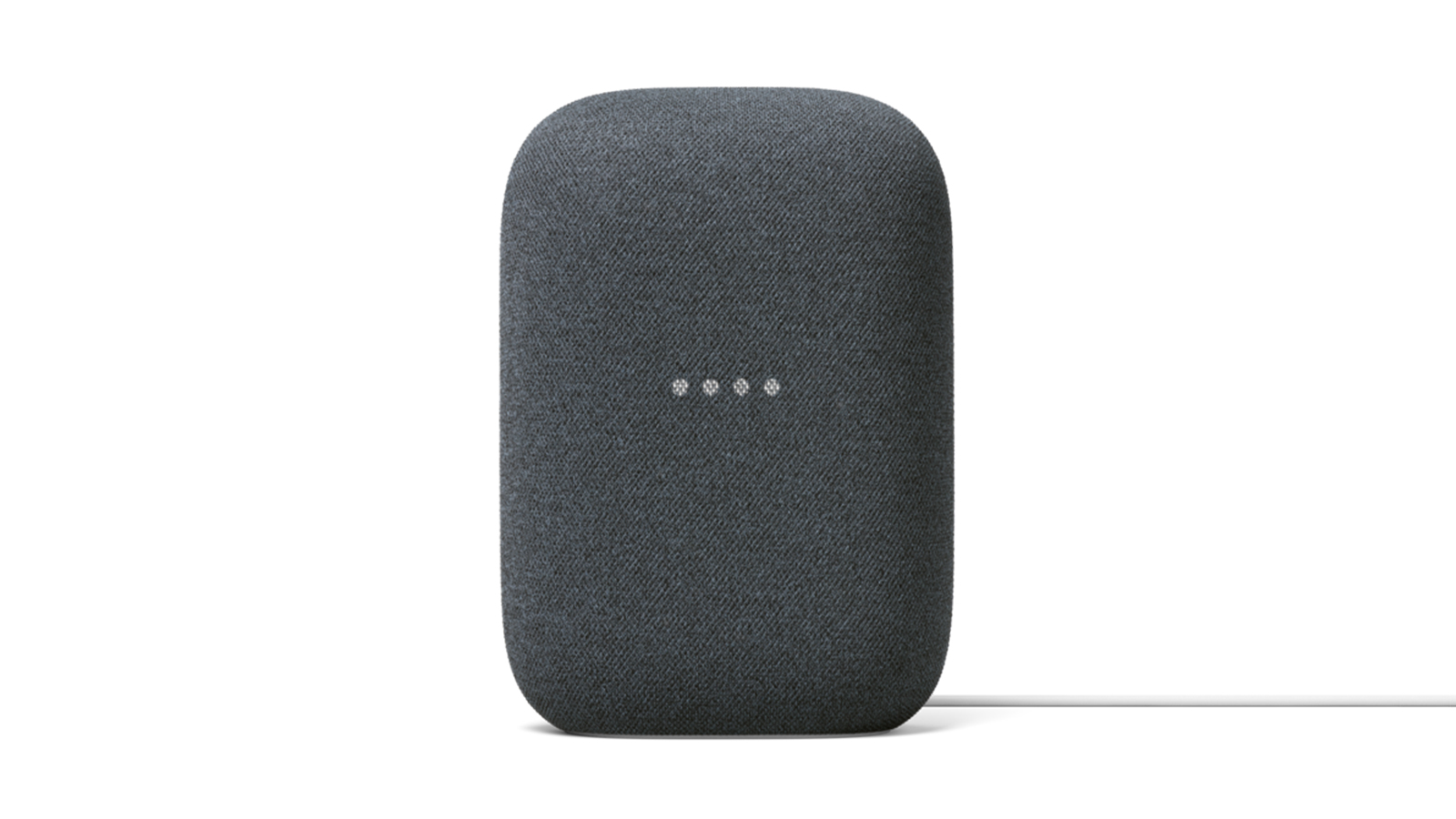
Nest Audio vs Amazon Echo 4th generation: Design
Amazon's design is by far the most striking of the two, and the company seems to have gone out of its way to make the new generation of its smart speakers stand out both among their peers and among basically all of your decor. Visitors will struggle not to notice that you have an Echo, however soft and unassuming the colouring of the cloth covering may be. This looks like it was beamed down from another planet, and it's a very radical departure from the soft-edge cylinder which preceded it.
Google, on the other other hand, has gone in the opposite direction, abandoning the slash-topped cone of the Google Home which came before. It looks like a rounded cloth brick, doing exactly what it's meant to without too much distracting visual flair.
Google's hidden controls are a neat touch, and its semi-sustainable nature (comprising 70% recycled plastic) will be reassuring for some. Amazon's repositioning of the Echo light ring, which lets it offer its glow to the surface the Echo is on, is also pretty neat, though harder to spot than the .
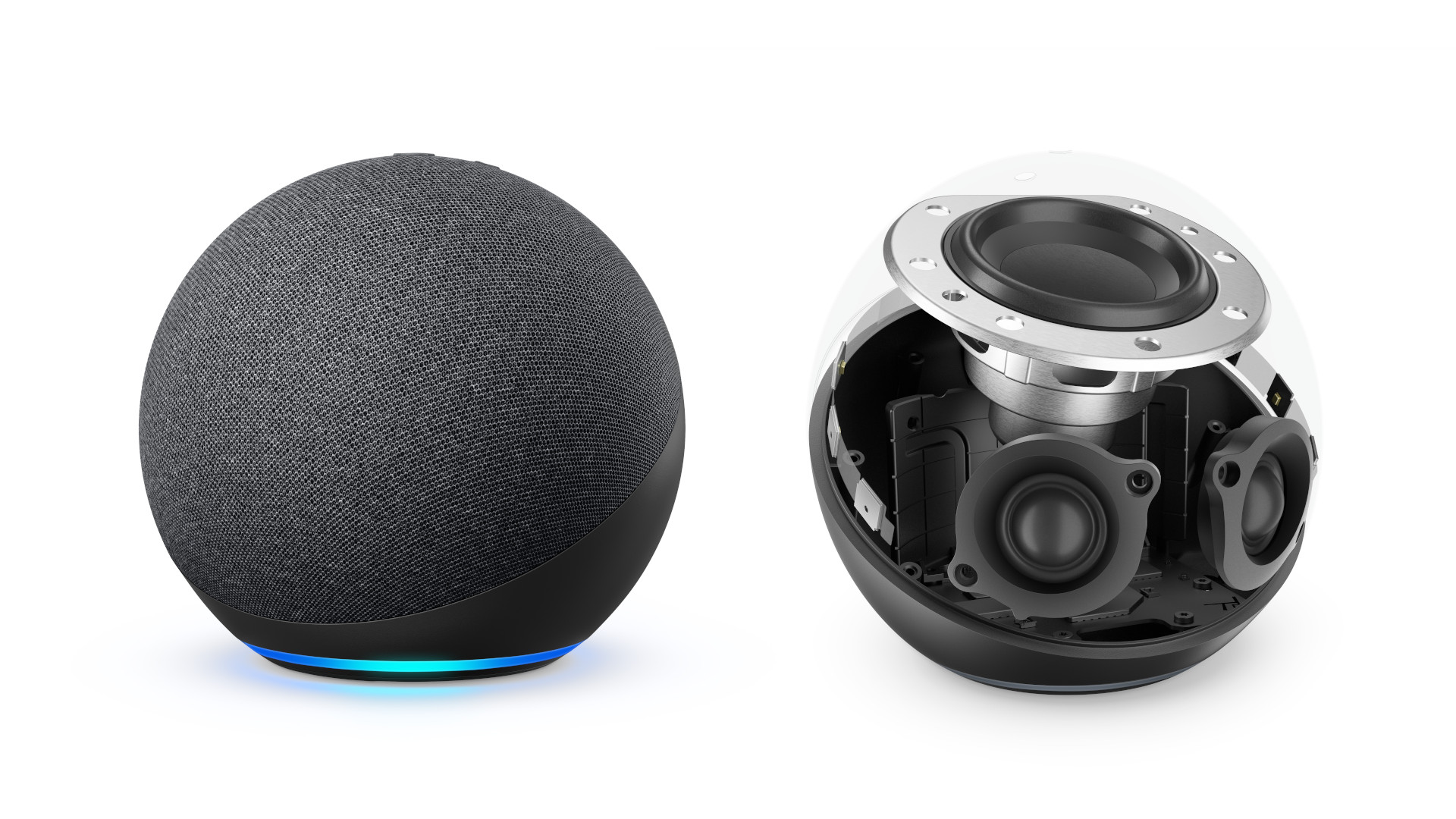
Nest Audio vs Amazon Echo 4th generation: Features
One of the Amazon Echo 4th Generation's biggest selling points is its integrated smart hub, which can control Zigbee items such as Philips Hue smart bulbs or Samsung SmartThings devices without the need for another hub. That's certainly an advantage it has over the Nest Audio. But for most people this won't make a huge amount of difference. You don't require direct control of Zigbee devices to get started with a smart home (many devices use Wi-Fi rather than Zigbee anyway), and it makes basically no difference to your ability to control devices with Alexa if you have a Hue Bridge already, but this does give you something to build on if not.
Get all the latest news, reviews, deals and buying guides on gorgeous tech, home and active products from the T3 experts
The Echo also features Amazon's AZ1 Neural Edge processor, which has been crafted specifically to accelerate machine learning processes. A lot of its brain work can be done on the device, rather than having to go back and forth to the cloud, which speeds common tasks up.
On the face of it, the Nest Audio doesn't have quite as many bells and whistles. That's not just an outward thing, either; Google's focus has been, as its name suggests, tweaking things to get the best sound it can. Not to imply that the Nest Audio isn't competent at performing standard smart speaker functions, because it is, but the little extras found in the Amazon Echo 4th Generation just aren't present. You do get more Googly functions, though: this works with Chromecast multi-room, and there's a physical disconnect switch for its mic, which will be reassuring if you want to make doubly sure no-one's listening in.
Realistically, neither transforms the category – they're by-the-book smart speakers, and that's okay – but the Echo pips it in terms of raw specs.
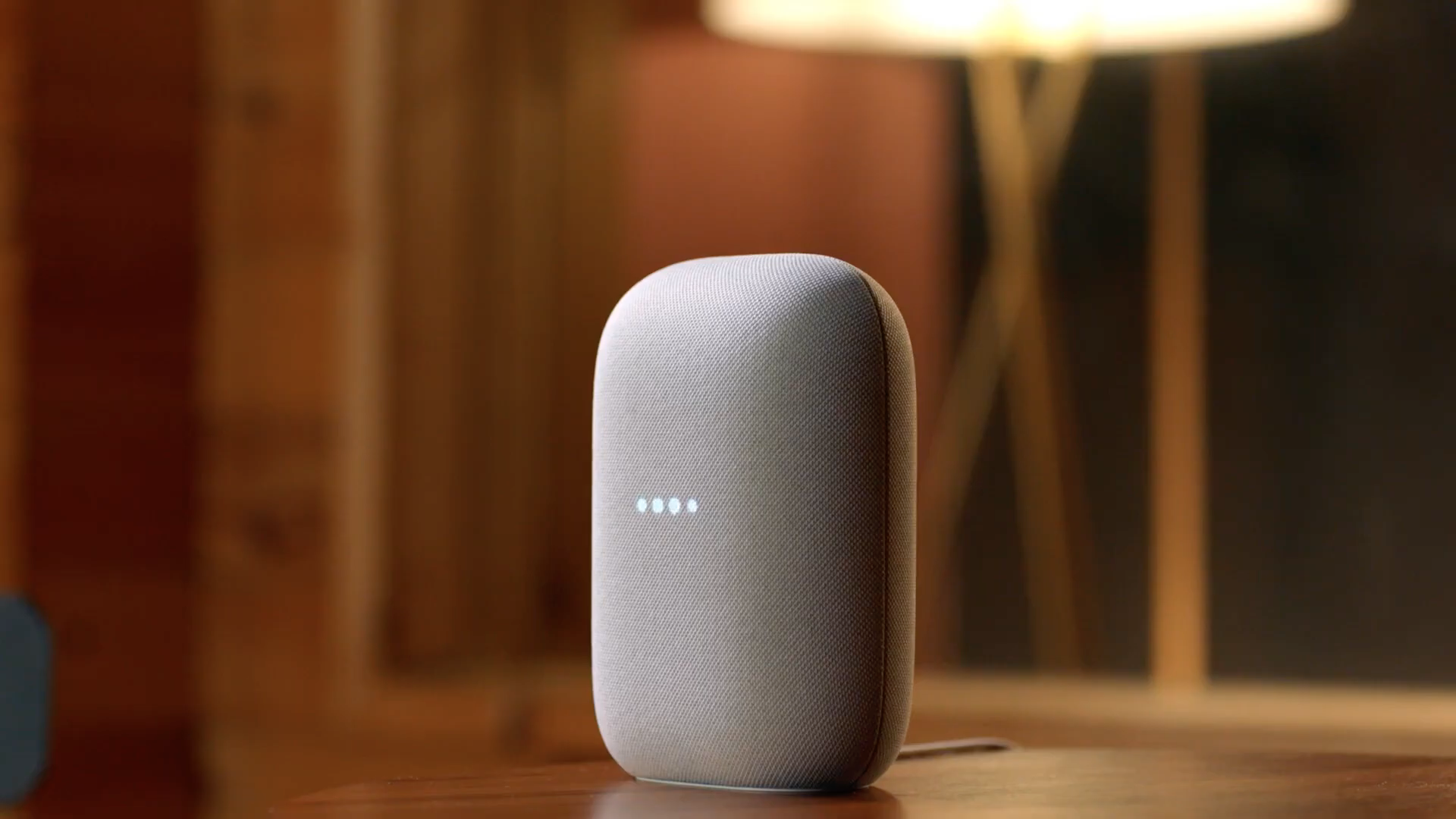
Nest Audio vs Amazon Echo 4th generation: Sound
About the Nest Audio's sound capabilities, then. Google has done at least a certain amount of manipulation and engineering to try to ensure that the Nest Audio lives up to its name. There's room calibration, which aims to set the EQ based on the environment to offer the best possible sound. Theoretically great, but in our full review we weren't so sure that this worked as well as the theory might suggest. There's sharp treble and warm bass, but a certain amount missing from the mids; definitely a good experience, and perfectly fine for the price, but not perhaps the audio experience you might expect given the name.
Given the slight note of negativity there, you might expect the Echo to best the Nest Audio. While it does have a decent speaker setup, with a 3-inch woofer paired with two 0.8-inch tweeters (both this and the Nest Audio are front-firing directional units, so they work best close to a wall) the Echo's audio output probably hits a similar mark. It's rich in bass, decent in treble, reasonable in the middle. Not audiophile quality, but not anything worthy of serious complaint. You can enjoy music on both quite happily.
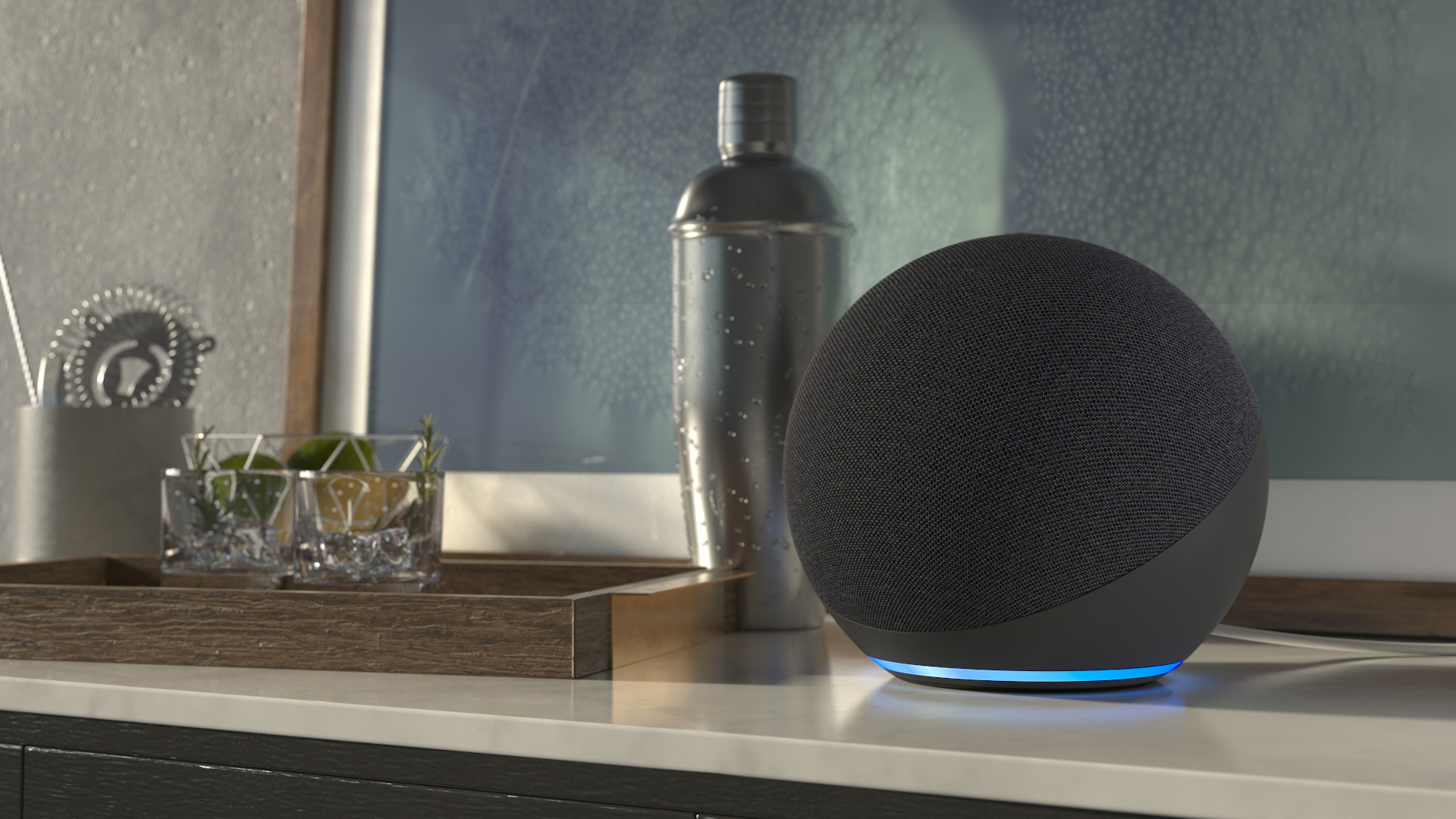
Nest Audio vs Amazon Echo 4th generation: Price
It's unlikely to be a coincidence that both the Nest Audio and Amazon Echo 4th Generation carry the same official price the world over. Each can be picked up for £90/$100/AU$149, and they're clearly designed to compete in the precise same space in the market. But this is a tough category to assess simply because both Google and Amazon offer frequent discounts on their hardware, so the price as you read this may not be the same – you can see the current latest prices below. If one or the other has seen a £30/$30 cut, it's going to be a lot more attractive than the other at full price.
They're both considerably cheaper than their higher-end companions, and neither is quite the impulse purchase that their smaller counterparts can be. In many cases if you're not looking for the extra features or more accomplished sound of the more advanced smart speakers, something like the Echo Dot 4th Generation or Nest Mini will fill the hole just fine.
Nest Audio vs Amazon Echo 4th generation: Verdict
If you're a smart home fanatic, Alexa speakers tend to be the better buy. That fact doesn't change here: the extra smart hub, the vast number of Alexa-compatible devices, and the general smarts of Alexa itself probably puts the Amazon Echo 4th Generation on top. But the margin is very slim. If you're more on the Google side of the equation when it comes to services, there's not going to be enough special about the Echo to convince most people to switch. The Nest Audio does a fine (if slightly unremarkable) job of filling the mid-range smart speaker side for Google, with the bonus of offering Google Assistant's integration with your Google world.
Of course, if it was audio quality you really wanted from these speakers in the first place, perhaps the Sonos One, with its support for both Alexa and Google Assistant, is worth checking out.

This gadget guru is a 25-year veteran of the tech writing wars, and has the scars to prove it. He's written for the UK's biggest technology publications, and knows everything from smart doorbell voltage needs to how to bend Windows to his every whim.
